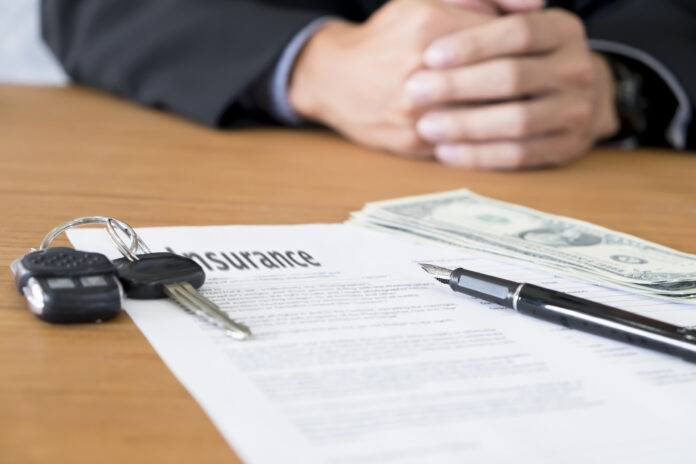Car accidents are an unfortunate reality of modern life. Whether you’re a seasoned driver or a new one, you can never be fully prepared for the aftermath of an accident. One of the most critical steps after a car accident is negotiating with your insurance company to receive compensation for the damages and injuries incurred. However, insurance companies can be challenging to deal with, and many people are unsure how to approach the negotiation process.
Do: Hire a Lawyer

If you’re not comfortable negotiating with insurance companies on your own, or if you believe you’re not getting a fair settlement offer from your car accident insurance, it may be time to hire a lawyer. A lawyer can help you understand your rights and options, negotiate with insurance companies on your behalf, and even take your case to court if necessary.
When choosing a lawyer, look for one with experience in car accident cases and a track record of successful negotiations and settlements. Additionally, make sure the lawyer is someone you feel comfortable working with and communicating with regularly.
Don’t: Accept a Settlement Offer Right Away
Insurance companies may offer you a settlement soon after the accident, but it’s essential not to accept it right away. Settlement offers are often lower than what you could receive if you negotiated or took the case to court. Additionally, you may not yet know the full extent of your injuries or damages, and settling too soon could leave you with unpaid medical bills or repair costs.
Before accepting any settlement offer, take some time to review it with a lawyer or an experienced negotiator. They can help you determine whether the offer is fair and whether it covers all your damages and injuries. If it doesn’t, you can counteroffer or negotiate for a higher settlement.
Do: Contact Your Company ASAP
The first thing you should do after a car accident is to contact your insurance company as soon as possible. This is important because companies often have strict timelines for filing claims, and you don’t want to miss out on any potential compensation. Additionally, they will likely want to conduct their own investigation of the accident, and the sooner you report it, the easier it will be for them to gather evidence and make a decision.
When you contact your insurance company, be sure to provide them with all the necessary information, including the time and location of the accident, the names and contact information of any witnesses, and a detailed description of what happened. The more information you can provide, the better.
Don’t: Admit Fault

When speaking with your company or the other driver’s insurance company, it’s essential to avoid admitting fault for the accident. Even if you believe you were responsible for the accident, it’s best to leave that determination up to the companies and the police. Admitting fault can hurt your chances of receiving compensation, as coverage companies may use your statement against you.
If you’re unsure of who was at fault, it’s best to say so and leave the investigation up to the insurance companies and the police. Remember, it’s not your job to determine fault – that’s why we have insurance companies and the legal system.
Do: Get Medical Attention
If you’ve been injured in a car accident, it’s crucial to seek medical attention as soon as possible. Even if you don’t think you’ve been seriously injured, it’s best to get checked out by a doctor to be sure. Many injuries, such as whiplash or concussions, may not show symptoms until hours or even days after the accident.
Getting medical attention can also help your claim. Insurance companies will want to see evidence of your injuries and the treatments you received, so be sure to keep all medical records and bills related to the accident.
Do: Document Everything
When negotiating with insurance companies, it’s crucial to document everything related to the accident. This includes taking photos of the accident scene, gathering witness statements, and keeping all medical records and bills. Additionally, keep track of any expenses you incur as a result of the accident, such as rental car fees or missed work.
Having thorough documentation can help you build a stronger case for compensation and can also serve as evidence if you need to take the case to court.
Don’t: Assume Your Insurance Company Is on Your Side

While your insurance company is supposed to be on your side, it’s important to remember that their primary goal is to protect their bottom line. This means they may try to deny or minimize your claim to save money. As such, it’s important to approach negotiations with a healthy dose of skepticism and to be prepared to advocate for yourself.
Don’t: Sign Anything Without Understanding It
Insurance companies may ask you to sign various documents or forms as part of the negotiation process. Before signing anything, be sure to read and understand it fully. If you’re unsure of what a document or form means, ask for clarification from your insurance company or lawyer. Additionally, be wary of any documents that require you to give up your right to pursue further compensation or that limit your ability to speak publicly about the case.
Do: Be Persistent
Negotiating with insurance companies can be a long and frustrating process, but it’s important to be persistent. Don’t give up or accept a low settlement offer just because it’s easier or more convenient. Stick to your guns and continue to advocate for yourself and your rights.
If you’re having trouble getting a response or a fair settlement offer from your insurance company, consider escalating the issue to a supervisor or filing a complaint with your state’s insurance department.
Don’t: Post About the Accident on Social Media
In today’s social media-driven world, it can be tempting to post about the accident on social media. However, doing so can hurt your case. Insurance companies may use your social media posts against you to argue that you weren’t as injured as you claimed or that you were partially at fault for the accident.
As such, it’s best to avoid posting about the accident on social media altogether. Additionally, be cautious about accepting friend requests or messages from strangers claiming to be insurance adjusters or lawyers. These may be scams designed to get you to say something incriminating or to provide personal information.
Conclusion
Negotiating with insurance companies after a car accident can be intimidating, but it doesn’t have to be. If you follow the tips outlined in this article, you should have no problem successfully negotiating a fair settlement from your insurer. By arming yourself with knowledge of the law and understanding of how insurance works and using proven tactics for negotiation, you will soon find yourself on your way to getting the compensation that is rightfully yours.










